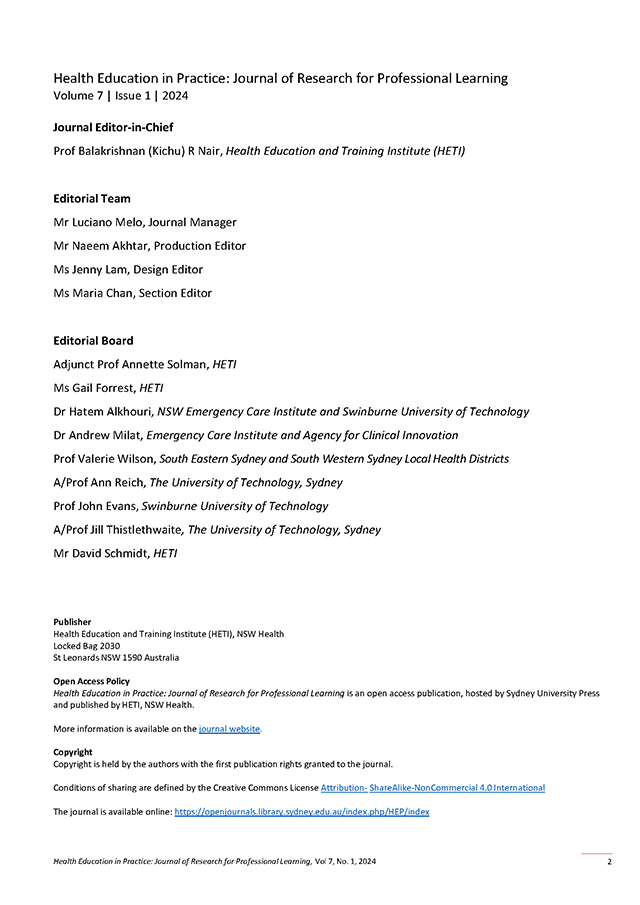Sleep Patterns and Awareness in Medical Imaging Students Using Wearable Technology
DOI:
https://doi.org/10.33966/hepj.7.1.18045Abstract
Purpose
This study explores the relationship between sleep quality and fatigue in medical imaging students using biometric devices. It examines the impact that objectively measuring and discussing sleep data has on students’ understanding and appreciation of the role of sleep in their academic and professional practices.
Design
The study adopts a case-based approach, with participants engaging in open collaborative discussions and personal investigation of their sleep data. Biometric devices were used to record sleep data over the course of one semester.
Findings
Results show that while all students recognised the importance of sleep, they had very little knowledge about sleep patterns, the effects of sleep on performance and memory, or sleep consistency. However, students engaged with their data and showed interest in learning more about sleep. As the study progressed, participants moved away from discussing sleep duration and focused more on the impact of sleep types on patterns of sleep quality. Some students used this newfound knowledge to try and change their sleep behaviours and optimize their performance, while others struggled to change their habits.
Implications
Overall, this study highlights the need for a more comprehensive approach to sleep education and the potential for personal analytics to facilitate understanding and behaviour change.
Downloads
Published
Versions
- 2024-08-09 (2)
- 2024-08-09 (1)

